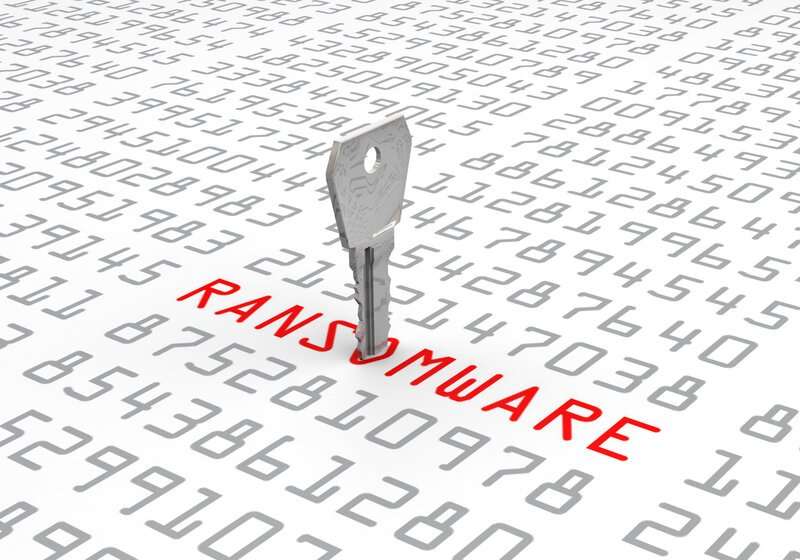
If you want to protect against ransomware attacks on yourself or your company, here is what you need to know.
What Is Ransomware?
Ransomware is an encryption Trojan that accesses computers via an innocent-looking host like an email, link on a website, or text message.
After gaining access, the ransomware creates encrypted files or locks the operating system. Important files and other information then become digital hostages. Ransomware attackers send a ransom note demanding money for the release of the files.
Luckily, there are many things you can do to protect against ransomware and malware attacks.
What Makes IT Systems Vulnerable to Ransomware Infection?
Here are some of the most common things that make all your data vulnerable to ransomware infections:
- Out of date hardware
- Outdated software
- Browsers and operating systems are not patched
- No recovery plan
- Security solutions are ignored
These weaknesses are widespread, and if any of them apply to you or your computer or mobile device, criminals can easily exploit vulnerabilities with ransomware and malware.
How To Protect Computers and Devices From Ransomware Infection
Here are some simple tips to thwart cybercriminals, including ransomware attackers:
- Personal information: Unless you know who you are giving it to, don’t share personal information on a phone call, in a text message, or by email. Before a ransomware attack, cybercriminals often collect information that makes phishing messages seem legitimate.
- Strong passwords: Use random letters, digits, and symbols totaling at least 16 characters.
- Links: Malicious links in spam messages and fraudulent websites are common ransomware entry points. Clicking on a malicious link can start an immediate download of ransomware infection. Security professionals can test suspicious links in a virtual machine, but individuals must rely on common sense.
- Email attachments: Email attachments allow ransomware criminals to gain access to files. Never open attachments from unknown senders and ensure the email address is legitimate. If attachments ask you to run a macro, avoid opening them because they might give ransomware control of your data.
- USB sticks: If you don’t know where a USB stick or other memory device comes from, do not use it. Criminals leave these devices in public spaces waiting for a user to infect a computer.
- Update programs and operating systems: Failure to regularly update means not making use of the latest security patches providers offer. Up-to-date security patches make things difficult for cybercriminals.
- Downloads: Never download files or software from sites that aren’t trusted and verified. These rules also apply to mobile devices. Only use trusted sites like the Apple App Store or the Google Play Store to download apps and games.
- VPN services: VPN services protect identity and information by keeping them encrypted.
Anti-Ransomware Software
Anti-ransomware software should be part of multiple layers of defense against cybercrime.
Anti-ransomware software includes ransomware scanners that check for viruses or filter content on your email. When you attempt to download a file or stream content, these programs recognize infections and stop the download. This stops ransomware-infected files from entering your computer.
Some internet security companies offer anti-ransomware tools that scan to detect a local or a remote ransomware attack.
It’s best to regularly update internet security solutions to access real-time protection and ransomware detection.
The Importance Of Protecting Data
You can foil some ransomware attempts by backing up data.
Successful data backup
- Use an external drive.
- Have up-to-date backups.
- Disconnect the external hard drive after backing up files.
Backup software
Backup software automatically backs up data. But be careful because some supposed security tools are actually Trojans allowing cybercriminals unauthorized access to your computer.
Software programs that automatically back up data have access to all computer content, so only purchase it from a trusted provider.
Ransomware protection for companies
While individuals are vulnerable to malware and ransomware attacks, the criminals’ biggest paydays are from companies. Big companies usually have sophisticated security systems that make a ransomware attack difficult, so smaller companies are more attractive to criminals.
Here is a to-do list of simple protective steps for every company:
- Keep up-to-date. Updating software is basic protection against cybercriminals.
- Educate employees. Company employees who know how to spot cyberattackers give companies an extra layer of defense. A company network security protocol helps employees recognize suspicious activity.
- Make a plan. Having a plan in place before an attack makes dealing with one easier.
- Use the cloud. Data stored on cloud technologies harness the security and encryption power of the world’s biggest companies. This makes things more difficult for cybercriminals who want your information.
- Have an up-to-date backup. Businesses deal with large amounts of sensitive data, which can make backing it up daunting. But regular business-critical data backups are a must for everyone using the internet. All employees should understand their role in this process.
Ransomware and malware
Ransomware attacks rely on data encryption and ransom extortion, but ransomware criminals employ ever-changing methods of doing business:
- Payment. Ransomware criminals used to demand payment via PayPal, but now that Bitcoin is readily available, most have turned to it because it is tough for law enforcement and local authorities to track.
- Points of Attack. In the past, phishing emails were the most important Trojan for gaining ransomware entry to computer systems. Today, botnets and VPN vulnerabilities have become almost as important.
The good news is, although cybercriminals have become increasingly skilled at attacking systems with ransomware, anti-ransomware protection is keeping pace. Employing a combination of sensible preventive measures and top-quality professional help can help you thwart ransomware attacks and keep your information secure.
Contact Us
If you are looking for guidance on protecting your important information and data, look no further than the team at Network Elites. Our experienced specialists can offer tailor-made solutions that cover all your IT and security needs.
To learn more about our comprehensive services, call us today at (972) 235-3114 or (214) 238-5251.





